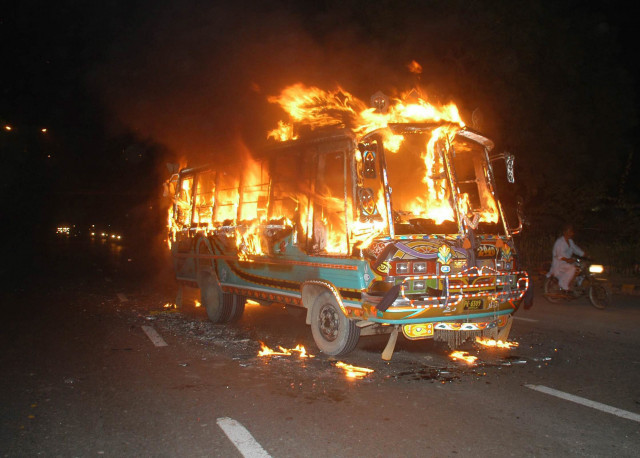Violence in Karachi
Political parties that should be more sensitive to igniting sectarian tensions have instead been fanning the flames.

At this point, there is no longer any value in assigning blame. The grievances of Karachi’s various ethnic communities have been simmering for so long that it is not possible to ascertain which side was first responsible for inciting violence. The political parties themselves need to stop playing the blame game and realise that since they can cool down tensions with the wave of a hand, they will all end up being blamed for the violence. The initial response has not been encouraging. The actions of the peace committee set up by the three main power brokers in the city — the MQM, the ANP and the PPP — has not inspired much confidence. Its proposal was to remove party flags and wall chalkings from the city, hardly a move that will deter murderers.
Conspiracy theorists will suggest that the rise in violence has coincided with the dip in the reputation of the Rangers following their pointblank murder of an unarmed civilian. We must resist the temptation to lionise the paramilitary force and not see them as the balm that will heal Karachi. The solution lies with the politicians, not the armed forces.
Published in The Express Tribune, June 23rd, 2011.
















COMMENTS
Comments are moderated and generally will be posted if they are on-topic and not abusive.
For more information, please see our Comments FAQ